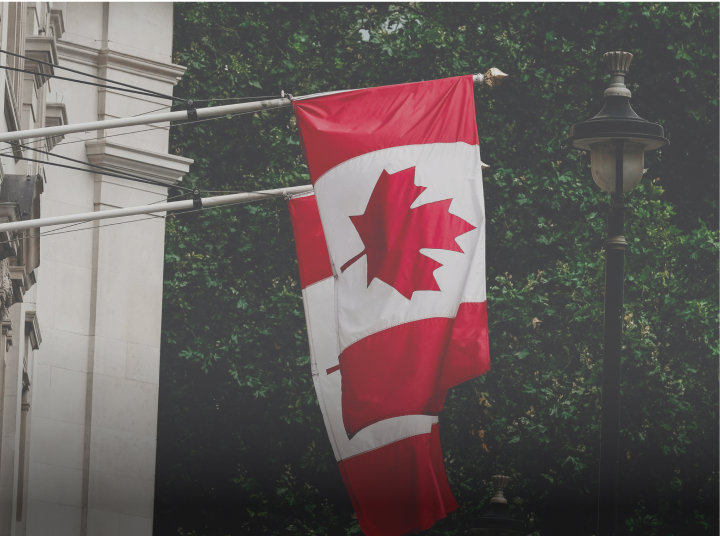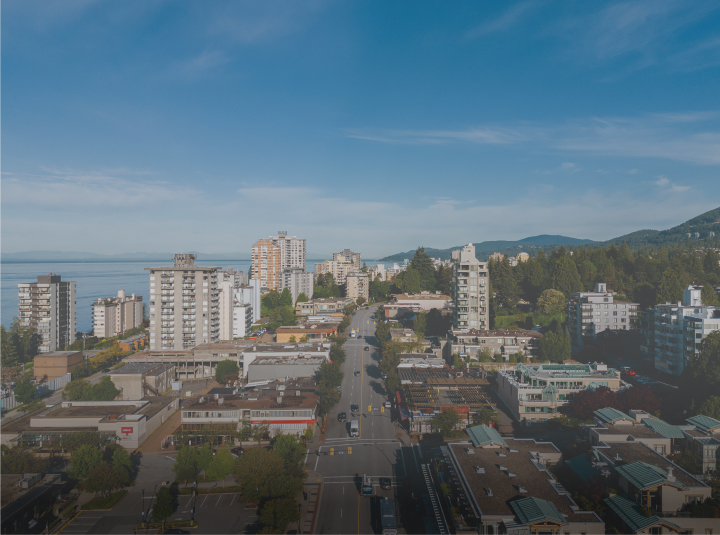interested in other markets?
Alongside the Vancouver edition of the rennie landscape, our intelligence group also produces editions for the Victoria and Kelowna markets. Read them at the links below.
Victoria editionKelowna edition06. policy
a temporary 180
Each November, the federal government updates its immigration policy, and since 2015, sets new immigration targets. Those targets have been specific to permanent resident additions, however, as we discussed earlier, the largest source of population growth in Canada of late has been from non-permanent residents (international students, foreign workers, and asylum seekers). The most recent immigration levels plan announced in November acknowledged that the temporary resident population was growing too fast to accommodate, and implemented specific targets to address it.
The immigration levels plan seeks a net loss of 445,000 non-permanent residents in each of 2025 and 2026, followed by a small increase of 17,000 in 2027. The previously announced plan to reduce the non-permanent resident share of total population to 5% remains. The permanent resident targets for 2025 and 2026 were reduced from 500,000 to 395,000 and 380,000 respectively, and the target for 2027 is 365,000. These new targets, while a significant reduction, remain higher than pre-pandemic levels (2019 had 341,000 permanent resident additions).
The government expects these new targets to result in annual population decline in Canada, by 85,000 in each of the next two years—something that has never happened in Canada going all the way back to Confederation. This will have significant implications for BC and its housing markets as we are forecasting population to also decline in Metro Vancouver in each of the next two years. Non-permanent residents are overwhelmingly renters, so the immediate impact will be felt in the rental market and we expect it to contribute to rental rate decline (in the form of average asking rents in new purpose-built apartments) in Metro Vancouver in 2025.
Seattle editionThe federal government has overhauled Canada’s immigration policy for the next three years. It will lead to the first ever population decline in our nation’s history.
borrowing with ease
Two recent changes from federal regulators have been implemented, both aimed at relaxing borrowing requirements. The first, from the Office of the Superintendent of Financial Institutions in November, will now allow renewers with uninsured mortgages to switch lenders without requiring a stress-test (this was already the case for insured mortgages). This will make it easier for renewers (as noted earlier, 1.7 million mortgages will renew this year) to shop for better rates at renewal as increased competition among lenders will put some downward pressure on offered rates.
The other federal change was raising the cap on mortgage insurance in December, allowing buyers to obtain mortgage insurance on homes priced up to $1.5 million (from $1 million). This will allow for lower down payments on homes priced between $1.0-$1.5 million and allow these purchasers to access lower insured mortgage rates. The announcement also included giving all first-time buyers and new home buyers the ability to borrow at 30-year amortizations, up from 25 previously. These changes will help some buyers, particularly first-time buyers, though they will not be a market mover.
putting the cap back on
Parliament is prorogued and an election is on the horizon, leading to a postponement of the new capital gains tax changes. The provincial government has two new policies aimed at facilitating increasing new home sales and developments.
We discussed in the Fall 2024 edition of the rennie landscape the changes to the capital gains tax inclusion rate proposed in April 2024. They were to take effect in June 2024, though the bill was not able to pass in the House of Commons prior to parliament being prorogued in December. With much confusion surrounding whether individuals and businesses would need to pay their new rates when doing their 2024 taxes, the federal government decided to delay the implementation to January 1, 2026 and add some exemptions for entrepreneurs, homeowners, and other Canadians.
A federal election will be held on April 28, and currently all of the leading candidates to be the next Prime Minister have declared they would not proceed with the changes to the capital gains tax inclusion rate, making it likely this policy will never be implemented. Reverting back to the previous capital gains tax inclusion rates will be beneficial to our housing market, where investors will face lower tax burdens on long-held properties if and when they sell.
subscribe to real estate insights that matter
Weekly real estate insights, analysis and perspective from our rennie intelligence division—helping you make sense of Metro Vancouver’s market.
By submitting your personal information, you consent to receive electronic messages from rennie marketing systems, including newsletters and event invitations. You can withdraw your consent at any time by following the unsubscribe link in any message. You can also refer to rennie’s privacy policy for more information and contact details.
provincial programs propelling purchases
On February 25, 2025 the BC Financial Services Authority announced a new pilot program for the Real Estate Development Marketing Act and its early marketing period. The program allows developments with 100 or more units, both actively selling and upcoming, to apply for an extension of its permitted early marketing period from 12 to 18 months. We discussed earlier how much of the market could be impacted by this change, which we see as necessary to adapt to the state of new home development today. This will bring more supply to the market as it increases the viability of pre-sale projects, which will help grow our housing stock.
On September 19, 2024 the provincial government announced the Attainable Housing Initiative (AHI), which will involve the provincial government providing financing on 40% of new home purchases, and buyers purchasing the other 60%. The province’s contribution is either repaid in full after 25 years (+1.5% interest) or when the owner sells the home or no longer uses it as a principal residence. Buyers must meet income threshold requirements. The program will initially be applied to the Heather Lands development in partnership with MST Nations Corporation and Canada Lands Company. This program will make home ownership more affordable for those buyers able to participate in the program, and bring a small boost to overall new home demand.
copyright © 2025 rennie all rights reserved
Disclaimer: This representation is based in whole or in part on data generated by the Chilliwack & District Real Estate Board, Fraser Valley Real Estate Board or Real Estate Board of Greater Vancouver which assumes no responsibility for its accuracy.
Disclaimer: This representation is based in whole or in part on data generated by the Chilliwack & District Real Estate Board, Fraser Valley Real Estate Board or Real Estate Board of Greater Vancouver which assumes no responsibility for its accuracy.
Disclaimer: This is not an offering for sale. Any such offering can only be made by way of disclosure statement. E&OE. The developer reserves the right to make changes and modifications to the information herein without prior notice. Photos and renderings are representational only and may not be accurate.
Disclaimer: This is not an offering for sale. Any such offering can only be made by way of disclosure statement. E&OE. The developer reserves the right to make changes and modifications to the information herein without prior notice. Photos and renderings are representational only and may not be accurate.
Find a home
Learn
About
rennie & associates realty ltd
advisor login














